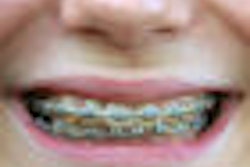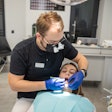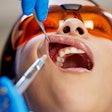A New York family is suing St. Luke's Hospital in Manhattan and its chief dentist, Bruce Lish, D.D.S., after a 33-year-old woman with cerebral palsy died from complications following oral surgery, according to a story in the New York Daily News. The case is a reminder of the challenges special needs patients can present when undergoing dental procedures.
On July 23, 2009, Dr. Lish removed several of Felita Dowdy's teeth, which had rotted because of her medical condition, the Daily News reported. But following the surgery she went into respiratory arrest, suffered brain damage, and died three months later, according to the autopsy report.
Last week her mother and stepfather filed a lawsuit in Bronx County Supreme Court against Dr. Lish and St. Luke's, seeking unspecified damages. Their lawyer, Stuart Kitchner, told the Daily News that the painkiller fentanyl was a "contributing factor" in the woman's death.
"The crux of this case is that there was a failure to monitor her postoperative care and treatment," he said in the story.
The hospital declined to comment, and Dr. Lish was not available for comment, according to the Daily News.
A 2007 study concluded that while dental rehabilitation of special needs patients under general anesthesia is safe -- especially when care is provided in a teaching medical center environment -- "Patients with mental and physical limitations often pose a challenge when presenting for dental treatment" (Anesthesia Progress, Winter 2007, Vol. 54:4, pp. 170-174).
According to the study, contributing factors that can complicate treatment of these patients include:
- Limited preanesthesia assessment of airway and general physical condition
- Limited medical risk assessment due to lack of cooperation or lack of access to medical support systems
- Lack of compliant caretaker network to ensure preanesthesia and postanesthesia compliance
- Surgical surprises which make estimating the risk and procedure time very difficult
- Undiagnosed dental and oral diseases that require more aggressive intervention
- Poor aftercare and compliance that can complicate what otherwise would be considered routine care
Copyright © 2010 DrBicuspid.com



















